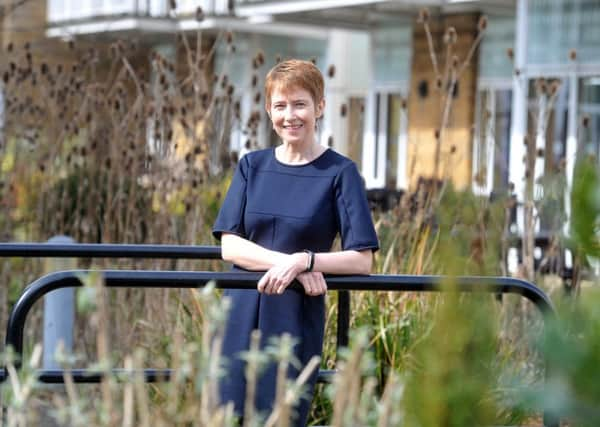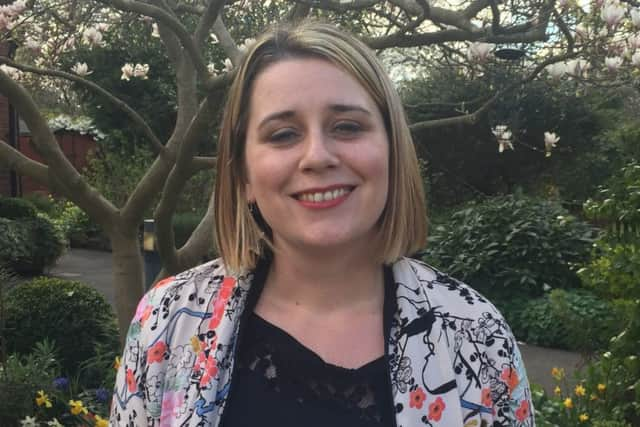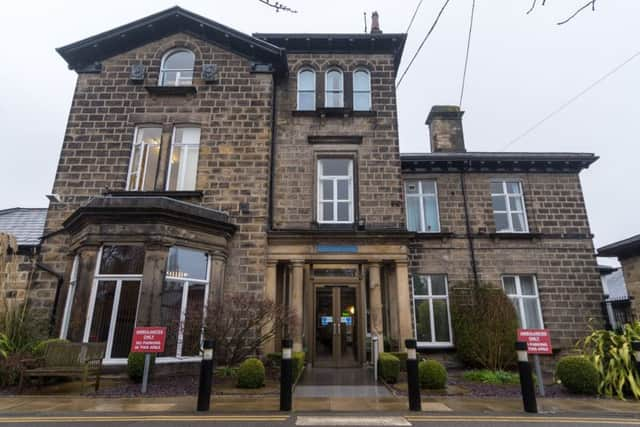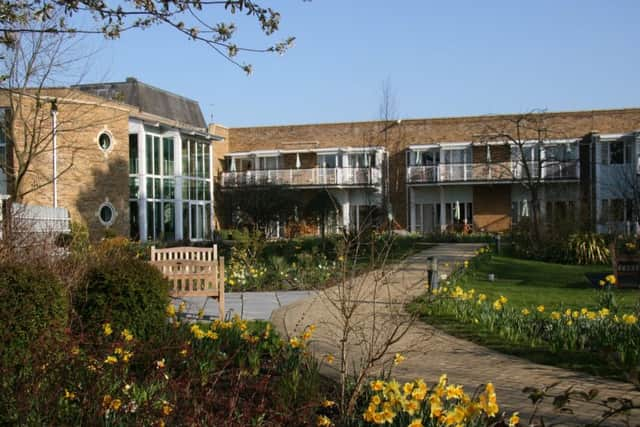Leeds hospices' 40th anniversaries: Hospice bosses speak of their ambitions for the future


The past 40 years have not been without their challenges at both St Gemma’s Hospice and Wheatfields Hospice - and today is no different.
But key to the success of the much-loved institutions is their ability to adapt and evolve as well as harbouring strong ambitions for the future.
Advertisement
Hide AdAdvertisement
Hide Ad

Bosses at both hospices told the Yorkshire Evening Post one of their key aims is to provide care and support to more people who need it.
Kerry Jackson, chief executive of St Gemma’s Hospice, said: “How do we provide enough care, given the number of people with dementia is going up and because of our ageing population?
The number of people dying each year is rising, so how do we make sure that we work together with others in the city to make sure we deliver the care that’s needed.
Advertisement
Hide AdAdvertisement
Hide Ad“We’re a really diverse and inclusive hospices. We’re trying to make sure we’re getting to each patient group; that people without a cancer diagnosis can access our services.


“Our vision is that everybody in Leeds with a terminal illness can get high-quality, skilled care at the end of life.”
Kate Bratt-Farrar, director of Wheatfields Hospice, said: “People are living longer, but they are also developing more complex care needs. We need to ensure we respond to the changing needs of our community in the best way possible, by providing care that is responsive and inclusive. We recognise that what matters most to people is not where the care is provided or about the building, but about the quality of the care.”
One of the aims to improve taht quality of care at St Gemma’s is to boost links between health and care organisations in Leeds.
Advertisement
Hide AdAdvertisement
Hide AdMs Jackson said: “We want to make sure people get integrated, co-ordinated, consistent care. Lots of people want to die at home but one of the challenges of that is you get lots of different health and care professionals coming up your path and into your home. For a family, they’re not sure what each person is there for or who to ring in a crisis.


“We’re working with Wheatfields and others, such as Leeds Community Trust and the acute hospital, to make that care better and more seamless. So the right person is there at the right time and they’re the only person.”
Education is another key ambition for both hospices - of staff, students and other healthcare professionals.
As previously reported in the YEP, last year St Gemma’s became the first university teaching hospice in the UK, after linking up with the University of Leeds.
Advertisement
Hide AdAdvertisement
Hide AdThe development allows for students to study palliative care in practice at the hospice and enables the latest research to be incorporated into staff and student training.


Ms Jackson said: “It’s about how do we make sure we have a real impact? Research and education really does improve the quality of care.”
At Wheatfields, Mrs Bratt-Farrar said an important aim is how to influence new models of care across the UK.
Advertisement
Hide AdAdvertisement
Hide Ad“Education is vital to ensure our staff have the right skills to deliver the best possible care and we offer our staff a highly specialised programme of continuous professional development, which includes clinical skills training, accredited modules, human rights training, supporting bereaved families and all levels of communication skills training.
“We also deliver training in palliative care and end of life care to professionals working in other care settings including GPs, district nurses and care homes so that staff feel more confident when delivering care to patients approaching the end of their life.”
But to achieve their ambitions and continue to deliver top quality care to the people of Leeds, both hospices rely on donations and fundraising from across the city - now “more than ever”, they said.


Ms Jackson said: “The support over the past 40 years has been absolutely incredible. The community has been there year in year out. Looking to the future, our need is great and we need their support more than ever.”
Advertisement
Hide AdAdvertisement
Hide AdShe said volunteers donating time is also vitally important to the continued success of the hospices.
“Funding is tighter than ever. It absolutely is. These are challenging times and we need the support more than ever.”
Mrs Bratt-Farrar added: “We are a charity and while all our care services are completely free to patients and their loved ones, the majority of our costs are covered by voluntary donations.
Advertisement
Hide AdAdvertisement
Hide Ad“The support of volunteers, the local community and businesses is really important and we are extremely grateful for all their incredible fundraising efforts as it is thanks to each of them that we can continue to be here for hundreds of people every year who need access to specialist end of life care.”